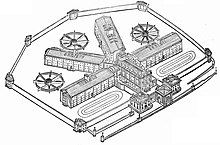
Criminal behaviour

In ordinary language, a crime is an unlawful act punishable by a state or other authority. The term 'crime' does not, in modern criminal law, have any simple and universally accepted definition, though statutory definitions have been provided for certain purposes. The most popular view is that crime is a category created by law; in other words, something is a crime if declared as such by the relevant and applicable law. One proposed definition is that a crime or offence (or criminal offence) is an act harmful not only to some individual but also to a community, society or the state ('a public wrong'). Such acts are forbidden and punishable by law. The notion that acts such as murder, rape and theft are to be prohibited exists worldwide. What precisely is a criminal offence is defined by criminal law of each country. While many have a catalogue of crimes called the criminal code, in some common law countries no such comprehensive statute exists. The state (government) has the power to severely restrict one's liberty for committing a crime. In modern societies, there are procedures to which investigations and trials must adhere. If found guilty, an offender may be sentenced to a form of reparation such as a community sentence, or, depending on the nature of their offence, to undergo imprisonment, life imprisonment or, in some jurisdictions, execution. Usually, to be classified as a crime, the 'act of doing something criminal' (actus reus) must – with certain exceptions – be accompanied by the 'intention to do something criminal' (mens rea). While every crime violates the law, not every violation of the law counts as a crime. Breaches of private law (torts and breaches of contract) are not automatically punished by the state, but can be enforced through civil procedure. When informal relationships prove insufficient to establish and maintain a desired social order, a government or a state may impose more formalized or stricter systems of social control. With institutional and legal machinery at their disposal, agents of the State can compel populations to conform to codes and can opt to punish or attempt to reform those who do not conform. Authorities employ various mechanisms to regulate (encouraging or discouraging) certain behaviors in general. Governing or administering agencies may for example codify rules into laws, police citizens and visitors to ensure that they comply with those laws, and implement other policies and practices that legislators or administrators have prescribed with the aim of discouraging or preventing crime. In addition, authorities provide remedies and sanctions, and collectively these constitute a criminal justice system. Legal sanctions vary widely in their severity; they may include (for example) incarceration of temporary character aimed at reforming the convict. Some jurisdictions have penal codes written to inflict permanent harsh punishments: legal mutilation, capital punishment or life without parole. Usually, a natural person perpetrates a crime, but legal persons may also commit crimes. Conversely, at least under U.S. law, nonpersons such as animals cannot commit crimes.
